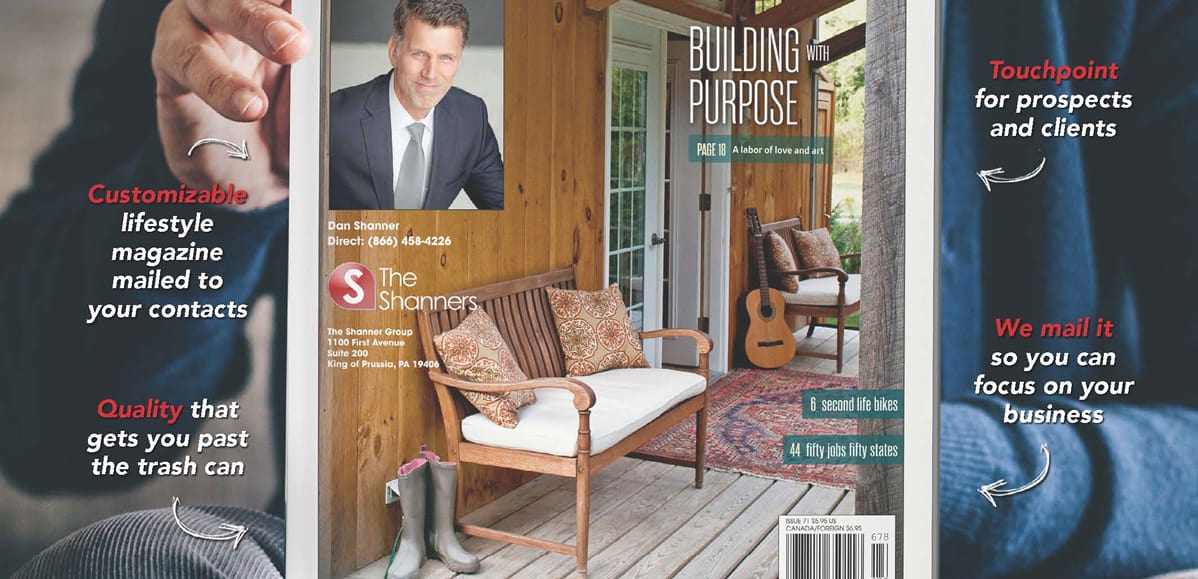It seems odd, but there are some financial advisors and other financial professionals who are reluctant to ask for referrals.
Whether they consider asking for a referral to be tacky, “sales-y,” or unprofessional; or they are shy about making the request; or they don’t want clones of their existing clients; or they are unsure about how to ask, not asking for referrals and recommendations leaves financial advisors, financial planners, and other financial professionals at a disadvantage.
Why you should ask for referrals and recommendations
First, requests for referrals and recommendations produce new leads that, depending on your ability to secure a contract, produce new clients.
- Capgemini’s 2018 World Wealth Report found that 44.4% of HNW individuals found their financial advisor through a referral.
- On average, referred customers are three times more likely to refer their friends to your brand and have double the lifetime value of non-referred customers.
- James Pollard (a.k.a. The Advisor Coach) reports people are 400% more likely to become a client when referred by a friend.

A large percentage of high net-worth investors have found their financial advisor through a referral.
Even more compelling are the results of a 33-month study by marketing researchers at Wharton University in Philadelphia, Pennsylvania, and Goethe University in Frankfurt, Germany.
These researchers conducted a deep analysis of data to establish the value of customers acquired by a European bank. Some of their key findings include:
- For the first 1,000 days, referred customers generated higher margins.
- When compared to other customers, referred customers were about 18% more likely to remain with the bank.
- When they combined the difference in margin with the difference in customer retention, the result amounted to a disparity in long-term customer value of 16% to 25%.

In at least one extensive study, referred clients saw higher returns, remained loyal, and produced more value than non-referred clients.
Second, when a potential client comes to you with a referral, it is far easier to set appointments and have productive discussions.
Having been referred by someone they plausibly know, like, and trust, a referred prospect is primed to have confidence in your expertise because a higher level of trust and credibility has already been established.
If you are reluctant to ask for referrals or recommendations, you would serve yourself well by changing your mindset.

Think you can’t ask for referrals? Then consider helping someone else a client knows as a courteous extension of your services to their friends and family.
Asking for referrals is an extension of your services. Think about it—if you’ve helped a client achieve a goal, feel more secure, or solve a problem, then why wouldn’t you ask if there is someone they know that you can equally help?
Not all referrals are equal in value
Before proceeding, I want to warn against getting too hung up on semantics. Recommendations are essentially a subset of referrals. While technically different, they operate to achieve the same thing in generally the same way.
Referrals and recommendations are implicit endorsements of your business. Both rely on the good will of a client to tell someone they know about the positive qualities of you and your services.
We can extrapolate from what we know about endorsements to suggest that the more emphatic the endorsement, the more value your clients feel you delivered, and the more they believe their friend, relative, or colleague would benefit from doing business with you.

Referrals and recommendations are essentially endorsements of your services as a financial professional.
As I’ve explained, referrals can grow your business. But not all referrals are equally valuable.
Contacting someone who may have never heard of you before, but who was given to you as a referral, is very much like placing a cold call—you don’t know them, and they don’t know you. Your call is likely to be unexpected, and it’s easy for someone to back out using some version of “this isn’t a good time.” Then you’ve got to go through the follow-up process.
If a client suggested to a friend that they call you, then the lead is warmer since they are taking the initiative. But they may not be the right type of client. You might work only with experienced investors, but the person calling has no such experience. You may work only with HNW clients and the referral may not fall into that category. There are many reasons why a referral may not be a good fit.

Random referrals that are little more than a name and number are likely to not be a good fit for you or them.
These are only a two of the potential issues with referrals, but you can mitigate the drawbacks with a practiced strategy suggested by Dan Allison.
Allison, a clinical and behavioral psychologist by training now with Brokers Clearing House, LTD, has spent 18 years generating referral traffic for his clients. His success comes from knowing that the best client referrals are provided by clients who:
- see so much value in their own experience with a business that they would confidently take the risk to refer someone very important;
- understand the comprehensive nature of all that business does and can convey its value proposition in a way that makes an impact;
- have a clear idea of the type of person who would be an ideal client for that business;
- understand that a personal introduction is needed to make the referral occur;
- are comfortable in providing referrals.

Invest time into identifying and educating your best clients who can then give you referrals to others like themselves.
You can listen to an interview with Allison on the Stay Paid podcast where he explains how to have in-depth conversations with your ideal clients, and how to educate them to make sure they meet these criteria. In doing so, you help ensure your ideal clients bring you more clients just like them.
The essential rule for garnering referrals
There is only one essential rule for ensuring that you garner referrals consistently:
Implement a marketing strategy that builds relationships with your clients and keeps you top-of-mind.
You want to ensure that when someone asks your clients for a referral to an advisor, yours is the first and only name they think of—even when you’re not there to tap their shoulder.
You already know that becoming involved in like-minded organizations, joining a board, hosting seminars/webinars, and similar actions are ways to enhance your visibility and build relationships. They provide you with opportunities to network with colleagues and to solicit referrals.
And all of these ideas are fine, except they demand a significant portion of your time. That’s time you could be using to serve your clients, to run your business, to educate your best clients and get the type of referrals you really want, and to be with family and friends.
There’s a better way . . . routinely provide your clients with value.
What do we mean by “value?”
In one way, “value” is something that your clients find useful.
Your clients are looking for help managing their wealth, planning their estates, purchasing insurance, etc. Anything that helps them achieve their goal will be useful. It could be information about asset allocation and diversification, the differences between wills and trusts, the importance of planning for retirement . . . the list is long, and you’ve provided a lot of this type of information before.

When striving to provide value to your clients, ensure that what you offer is useful, entertaining, timely, and relevant.
Value can also be attributed to something that is entertaining. Everyone enjoys an engaging article about something they find interesting, a suggested recreational activity, an easy tip to improve their health, a new recipe just in time for the holidays, or a good laugh. All you need to do is search “cute kitten videos” and you’ll see what I mean.
Another feature of value is that it is timely and relevant. There isn’t much point in sharing information with your clients about property investments if the real estate market is tanking (which, at the moment, fortunately isn’t the case).
For any of this value to make a lasting impression so that you remain top-of-mind, it must:
- Connect frequently: Here the key is to provide value on a consistent basis. It doesn’t have to be every day, but if you’re going to build a relationship where you’re remembered, then it’s got to be more than a holiday card once or twice a year.
- Deliver impact: Value that delivers impact is something of high quality that connects with the needs and interests of your audience.
- Build trust: You can build trust by branding yourself as the expert authority in your niche.
In a word, to build relationships where you remain top-of-mind with clients so that they might refer you to friends, family, and colleagues, you need to provide value (something useful, entertaining, and timely) that connects with your clients frequently, delivers impact, and builds trust. And, to preserve your time, you need to be able to provide value in a way that is efficient, effective, and saves you time (i.e., it’s automated).
Referrals and recommendations the easy way
At ReminderMedia, we help you collect more referrals and recommendations by providing you with quality, value-laden content that’s personally branded to you and automated for delivery to your exclusive list of recipients.
Our flagship product, American Lifestyle magazine, has been proven by an independent third party to produce an average 58% referral rate from those who receive it.*
Our reputation as relationship marketing experts rests on our ability to keep our clients top-of-mind for their own clients by consistently delivering value that has an impact, builds trust, and makes you memorable.

We’ll help you garner more referrals by providing your clients with consistent, high-impact value that is branded to you and keeps you top-of-mind.
We’ve spend more than 17 years refining our process so that you can provide your clients with a bi-monthly, professionally produced magazine whose quality rivals that of Forbes and Financial Advisor for less than the price of a greeting card.
Free of financial information, American Lifestyle presents your clients with 48-pages of beautiful images, engaging articles, shareable tear-out cards (also branded to you), and customizable content.
You owe it to yourself to take a look. Click here and we’ll email you a free sample of our latest issue.
And while your there, visit our library of free resources, many designed especially for independent financial advisors, including blogs, a podcast, downloadable worksheets, webinars, trainings, and success guides.
* 2019 ReminderMedia Reader Study; conducted by GfK MRI.




















